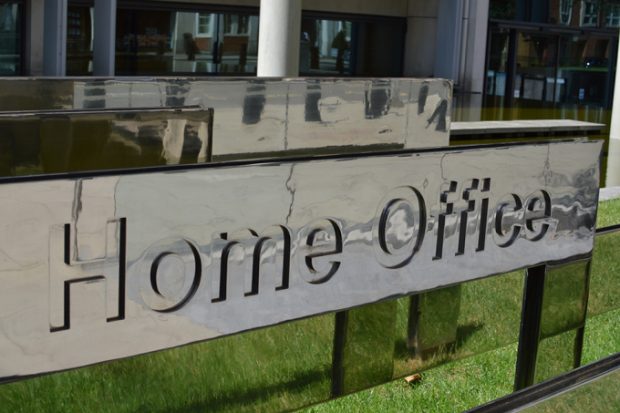
Today's leading stories include the announcement of a public health duty of care to tackle knife crime and the levels of burglaries resulting in charges being brought.
Public body ‘duty to stop knife crime’
There is further coverage of the Home Secretary’s announcement that public bodies have a legal duty to help tackle knife crime in the Guardian and Independent.
Police forces, health bodies and councils have a duty to share data, intelligence and knowledge to tackle the root causes of violence, the Independent reports. The piece carries the Home Secretary’s quote in which he states violent crime is a “disease that plagues our communities”.
It adds that the new legal requirements are designed to build on existing responsibilities and would not burden already-stretched public servants.
The Guardian carries a warning from public worker unions that the new announcement must be backed by extra cash if it is to succeed.
Geoff Barton, Chair of the Association of Schools and College Leaders said it was another example of society “thinking teachers can do everything”.
John Apter, National Chair of the Police Federation welcomed the public health duty while Patricia Marquis, director of the Royal College of Nursing for England, said the move was a "sensible approach".
Home Secretary, Sajid Javid said:
Violent crime is a disease that is plaguing our communities and taking too many young lives.
It’s crucial that we all work together to understand what causes violent crime in the first place, so we can intervene early and prevent this senseless bloodshed.
I’m confident that a public health approach and a new legal requirement that make public agencies work together will create real, lasting long-term change.
Burglary charge rate
Fewer than two per cent of burglaries result in a charge in some areas, the Star reports.
North Yorkshire had the lowest charge rate of 1.8 per cent, according to Home Office figures, while the Metropolitan Police recorded a rate of 3.1 per cent.
The paper blamed the numbers on a fall in the number of detectives. It goes on to quote Metropolitan Police Commissioner Cressida Dick, who said that “detection rates nationally are woefully low”.
A Home Office spokesperson said:
While burglary levels have fallen 20% since 2010, too many people still experience this traumatic crime.
That is why the Policing Minister recently chaired the first meeting of a new Burglary Taskforce which brought together the police, industry and charities like Crimestoppers to look at what more we can do to crack down on this intrusive crime.
We recognise demand on the police is changing. That is why police funding is increasing by more than £1 billion this year including council tax and serious violence funding.
EU Settlement Scheme app
EU nationals who have been in the UK for fewer than five years face “uncertainty”, according to The Guardian, because of a technical problem with the app.
Citing a case study of a 31-year-old Swedish national, Hugo Nilsson, the piece claims that he faced trouble converting his status from pre-settled status to settled status on the EUSS app.
Mr Nilsson told the Guardian that when he tried to convert his status on the app, “it was not technically possible” to do so.
He added that when he called the EUSS helpline he was told that the app “had not rolled out the functionality yet”.
The Home Office informed the Guardian that Mr Nilsson has received pre-settled status, and as a result has successfully applied to the EU Settlement Scheme.
He will be able to convert his application to fully settled status at the end of July.
A Home Office spokesperson said:
Having secured status through the EU Settlement Scheme, Mr Nilsson is one of almost 700,000 people who have already done so.
From the end of July, it will be possible for people with pre-settled status to convert to settled status as soon as they become eligible.
The Scheme is performing very well, with the latest available figures up to 10 June showing that more than 800,000 people had applied.
